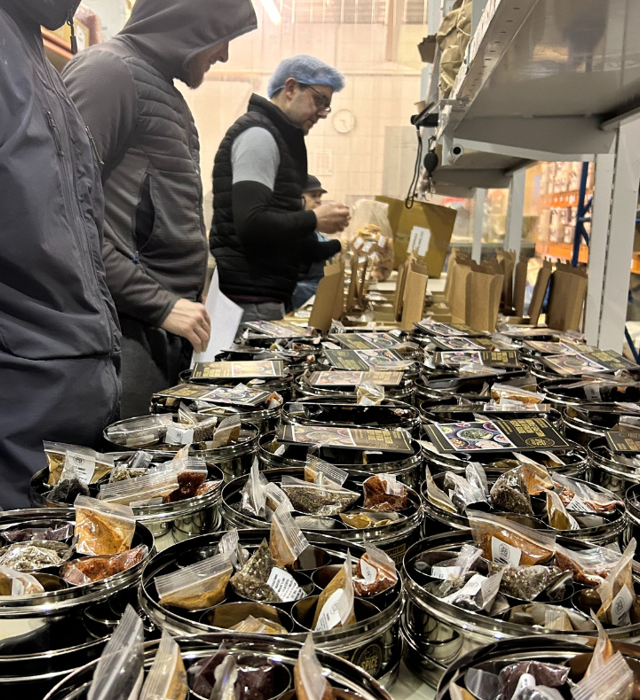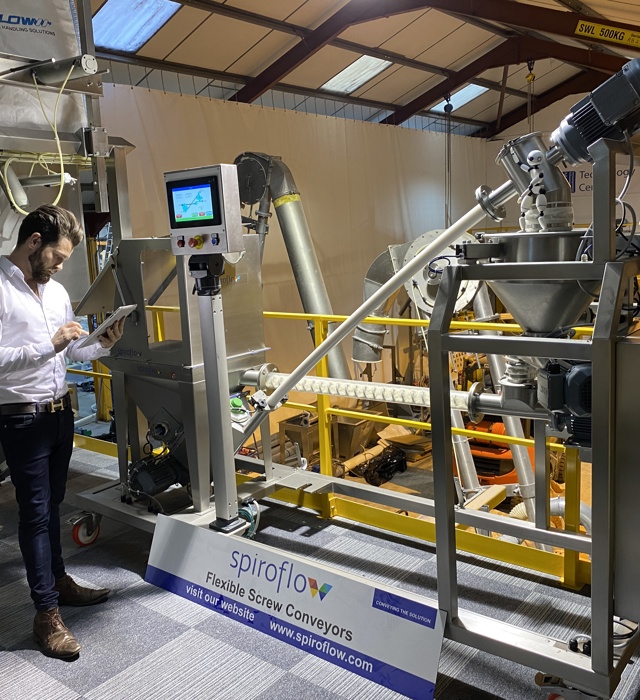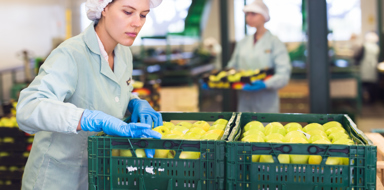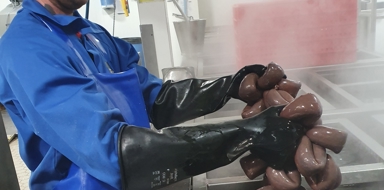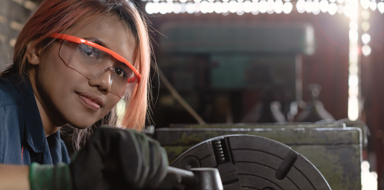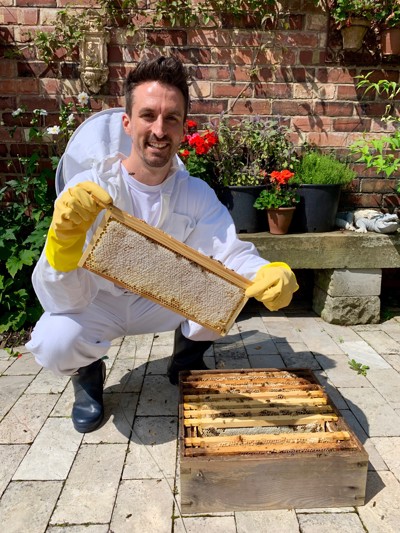
A honey manufacturer is investing in automation to double its growth and take its first step towards a smart factory.
Just Bee Honey, based in Trafford Park, Manchester, makes a variety of flavoured and vitamin infused honey products which are sold direct-to-consumer.
With the support of Made Smarter, it is investing £41,000 in an automated solution to replace an inefficient, manual process for sealing and labelling its products.
This will increase production speed, capacity and quality, and support plans to double revenue over the next two years. Meanwhile, production operatives currently performing the manual processes will be moved to more high value, skilled roles.
Andy Sugden, Co-Founder, said: “We have been on quite a journey over the last 10 years from handmade products in a kitchen to a factory. But our development has been ad-hoc. The Made Smarter team has helped us develop a vision and a roadmap of how to get there.
“Our dream is a smart factory, fully automated and digital. We have now taken that first step.”
Case Study - Just Bee HoneyWe want to be able to do things faster, more efficiently and to a higher standard, while enabling our team to contribute their skills in other areas of the business.
Andy Sugden, Co-Founder of Just Bee Honey
Launched in 2014 by business partners Andy Sugden and Joe Harper - the son of a beekeeper - Just Bee Honey started life as a mission to make healthy soft drinks using honey, and to help conserve the UK’s bee population.
After selling in cafes and delis, the pair secured a spot on BBC TV show Dragon’s Den. Soon after their products began selling in Selfridges, Waitrose, Sainsbury's, Co-op, WH Smith and Boots.
However, when the pandemic hit, sales plummeted, prompting a pivot to manufacturing vitamin infused and flavoured honey, selling directly to consumers via their website.
Since then, sales have sky-rocketed to approximately 250,000 units per year. They now produce nine different products which are sold across the UK.
Just Bee Honey’s ambition is to double revenues over the next two years and begin selling through supermarkets. To achieve those targets the company needs to increase production capacity and reduce production costs.
Automation is currently used to process the raw honey. This starts with blending, where vitamins, botanicals and flavours are added, and the pot filling process. Production operatives then manually lid and seal the pots, before applying labels and batch codes.
Andy explained: “We have a small but fantastic team of staff here, but the manual element of production is a bottleneck and is really holding us back. We are limited by the speed of the operator and the overall process is highly inefficient and at times disjointed. There are also issues with quality as labels can be applied inconsistently.
“We want to be able to do things faster, more efficiently and to a higher standard, while enabling our team to contribute their skills in other areas of the business.”
After engaging with Made Smarter, the business had a digital transformation workshop - a fast-track analysis of its people, process, and product. This identified a clear digital roadmap which included investment in technologies and skills.
A grant has enabled the business to invest in an automated solution for the sealing, labelling and digital batch coding processes. The machinery being deployed includes a Super SealTM 400 induction cap sealer and a Tri-Roller Compact Labelling System.
Meanwhile, the business recently took on a Head of Operations to manage the implementation of new technology and drive the digital transformation.
With limited funds to invest in capital equipment the grant support from Made Smarter has accelerated the project by at least two years.
Replacing manual, low-skilled tasks with automated and digital processes will increase the efficiency of the production process considerably. The investment is forecast to reduce the manufacturing cost per unit by 20%.
Improved quality of products will improve customer satisfaction.
A digital batch-coding process will enable traceability and support food safety accreditations required for supermarket sales.
The investment also supports net zero ambitions. The solution will reduce waste by minimising errors in production processes, which in turn reduce the amount of energy consumed.
Automation will free up operators to perform more higher-skilled tasks. The project will support growth plans which include creating five new jobs in high-skilled roles such as new product development, supply chain management and marketing.
The next step is to retrofit existing machines with sensors, so they are digitally connected. This will give the business real-time data on machine performance, enabling them to optimise processes and identify areas for improvement.




